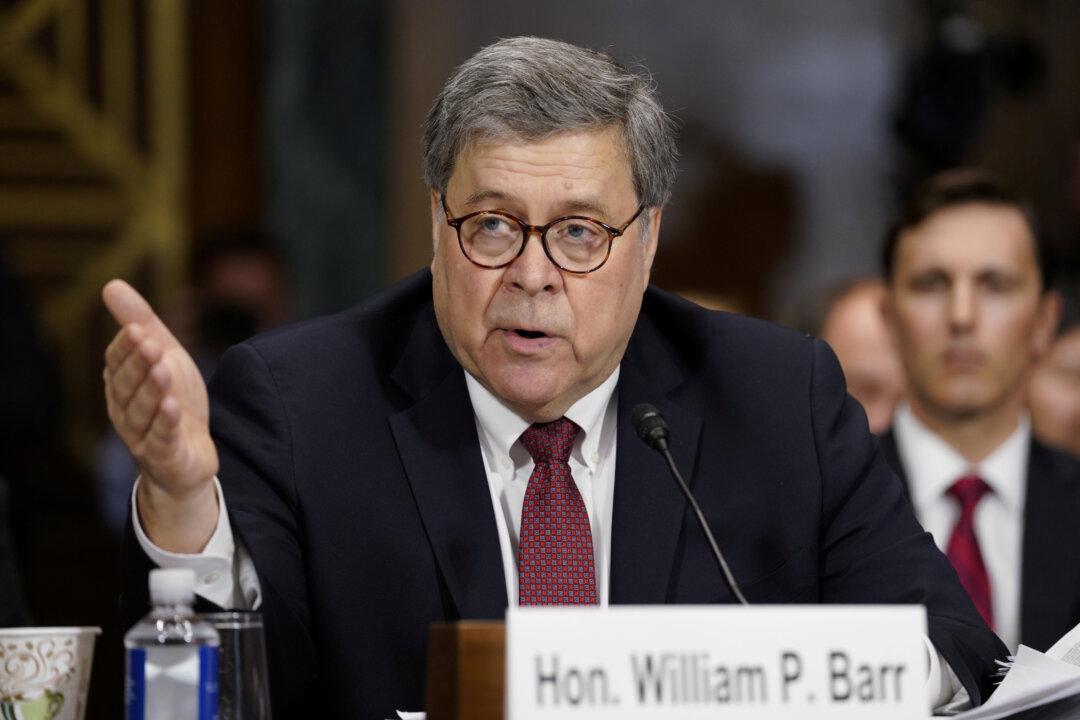During the Senate Judiciary Committee hearing on May 1, Attorney General William Barr reiterated that he will look into the origins of the Russia interference probe and the extent of the FBI surveillance on President Donald Trump’s campaign during the 2016 presidential election.
Barr testified at another Senate hearing on April 10 that he believes that Trump’s campaign was being spied on and announced that he intends on “reviewing both the genesis and the conduct of intelligence activities directed at the Trump campaign during 2016” to learn whether the surveillance was “adequately predicated.”




